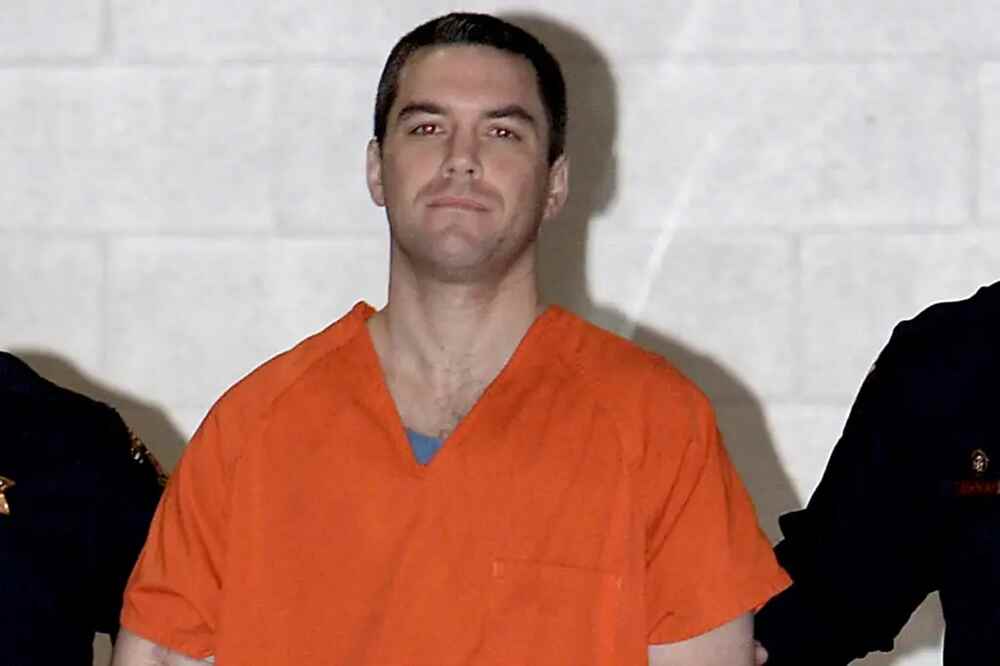The Shocking Case of Dylon Ray Peterson

A Night of Unimaginable Horror
The tranquility of Vancouver, Washington, was shattered on January 7, 2007, when Dylon Ray Peterson made a chilling 911 call confessing to the murder of two individuals. The victims were Sandra Torrell, a 45-year-old mother, and her 15-year-old son, Mathew Nagle. The crime occurred in their apartment on K Street, a detail that added a layer of fear and insecurity among the residents. Peterson’s unexpected and brutal actions left the community in shock, grappling with the sudden and violent loss of two of its members. The 25-year-old Peterson’s confession initiated a legal process that would attempt to seek justice for the grieving families while leaving many unanswered questions about the motives behind the senseless act.
The Immediate Aftermath and Arrest
Within moments of his confession, law enforcement officers were dispatched to the crime scene. What they encountered was a gruesome tableau of violence that underscored the severity of Peterson’s actions. He was arrested without incident shortly after his call, showing no resistance to the authorities. The rapid arrest was a small comfort to a community reeling from the sudden violence. For the families of Sandra and Mathew, the immediate shock was compounded by the swift legal proceedings that followed. Peterson was charged with two counts of first-degree murder, a charge that carried the potential for the death penalty. The legal system moved quickly to address the severity of the crimes, but the question of why Peterson committed such an atrocity remained unanswered.
The Court Proceedings: Seeking Justice
In April 2007, Dylon Ray Peterson appeared in court to face the charges against him. In a plea deal designed to avoid the death penalty, Peterson pleaded guilty to two counts of first-degree murder. While sparing him from the most severe punishment, this plea deal resulted in a lengthy prison sentence of 57.5 years. During the sentencing, the judge and the prosecution painted a picture of Peterson’s actions as cold and calculated, devoid of remorse or justification. The courtroom was filled with emotional statements from the victims’ relatives, whose lives were irrevocably altered by the loss of Sandra and Mathew. Their testimonies highlighted the depth of the community’s grief and the enduring impact of Peterson’s crimes.
Community Response and Emotional Impact
The murders sent shockwaves through Vancouver, a city unaccustomed to such violent crime. The community’s response was one of disbelief and mourning. Memorials and vigils were held in honor of Sandra Torrell and Mathew Nagle, offering a semblance of solace to those affected by the tragedy. The emotional impact of the murders was profound, with many residents expressing fear and sorrow over the loss of their neighbors. Schools and local organizations supported those struggling with the emotional fallout, emphasizing the need for communal healing after such an event. The media coverage of the case further amplified the community’s distress, as details of the crime and the subsequent legal proceedings were broadcast widely.
The Elusive Motive: Searching for Answers
One of the most confounding aspects of this case was the absence of a clear motive. Despite his guilty plea, Dylon Ray Peterson never explained his actions. This lack of insight into his state of mind or the reasons behind his violent outburst left a void in the narrative of the crime. Speculation abounded, with some suggesting that Peterson’s intoxication at the time of the murders may have played a role, although this was not used as a defense in court. The lack of a motive made it difficult for the community and the victims’ families to find closure. The unanswered questions about why Peterson committed such a heinous act lingered, adding to the pain and confusion experienced by those left behind.
The Legal and Ethical Implications
The case of Dylon Ray Peterson also raised significant legal and ethical questions. The decision to accept a plea deal rather than pursue the death penalty was met with mixed reactions. Some viewed it as a pragmatic choice, ensuring that Peterson would spend a significant portion of his life in prison. Others felt that the severity of the crime warranted the ultimate punishment and that justice had not been fully served. This debate highlighted broader issues within the legal system, including the use of plea deals in cases involving serious crimes and the ethical considerations surrounding the death penalty. The case also prompted discussions about the adequacy of support systems for individuals struggling with mental health and substance abuse issues, as well as the need for preventive measures to avert such tragedies.
The Role of Intoxication in the Crime
Reports indicated that Dylon Ray Peterson was intoxicated at the time of the murders, a factor that added another layer of complexity to the case. Intoxication can impair judgment and increase the likelihood of violent behavior, but it is not typically seen as a justification for committing serious crimes. In Peterson’s case, his state of intoxication was noted but did not play a central role in his defense or sentencing. This raises important questions about the extent to which intoxication should be considered in legal proceedings, particularly in cases involving violent crimes. The community’s response to this aspect of the case was mixed, with some expressing frustration that Peterson’s intoxicated state might have contributed to a lesser sentence. In contrast, others focused on the need for greater awareness and prevention of substance abuse.
Long-Term Effects on the Community
The long-term effects of the murders on the Vancouver community were significant. The loss of Sandra Torrell and Mathew Nagle left a lasting impact on those who knew them and the community as a whole. The tragedy underscored the need for increased vigilance and support for vulnerable individuals, as well as the importance of addressing issues such as mental health and substance abuse. Community organizations and local authorities worked to provide resources and support to those affected by the crime, emphasizing the importance of collective healing and resilience. The case also served as a reminder of the unpredictable nature of violence and the need for ongoing efforts to prevent such tragedies.
Efforts Toward Healing and Prevention
In the years following the murders, the Vancouver community has made concerted efforts to heal and move forward. Initiatives aimed at promoting mental health awareness, substance abuse prevention, and community support have been implemented, reflecting a commitment to preventing similar tragedies in the future. Local schools and organizations have also focused on providing education and resources to help individuals recognize and address potential signs of distress or violence. These efforts are a testament to the community’s resilience and determination to create a safer and more supportive environment for all residents.
Conclusion
The case of Dylon Ray Peterson is a stark reminder of the devastating impact that violence can have on individuals, families, and communities. The murders of Sandra Torrell and Mathew Nagle left an indelible mark on Vancouver, prompting reflection on issues of justice, prevention, and healing. While Peterson’s guilty plea and subsequent imprisonment provided a measure of accountability, the lack of a clear motive and the enduring pain of the victims’ families and the community underscores the complexities of dealing with such a tragedy. As Vancouver continues to heal, the memory of Sandra and Mathew serves as a poignant reminder of the importance of compassion, vigilance, and community support in the face of unimaginable loss.
Read more interesting topic at Tech Behind It.







